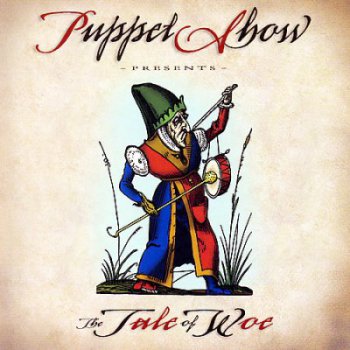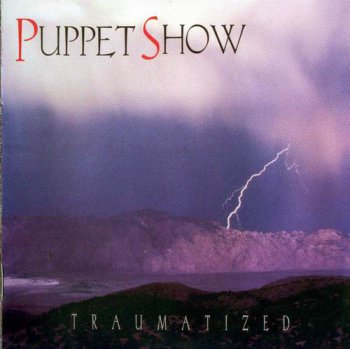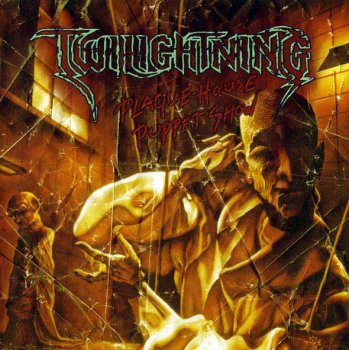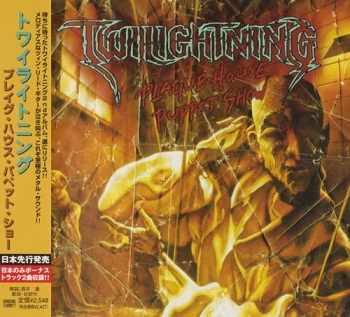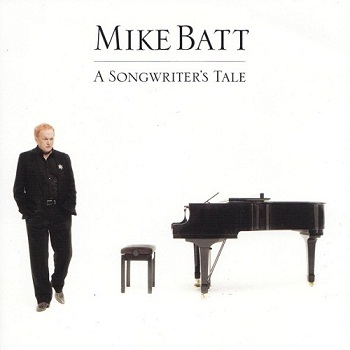Tony Banks (ex-Genesis) - Collection: 7 albums (1979-2012)

Tony Banks (ex-Genesis) - Collection: 7 albums (1979-2012)
Artist: Tony Banks Title Of Album: Collection Year Of Release: 1979-2012 Country: UK Genre: Prog Rock, Art Rock, Classical Quality: FLAC (*image + .cue,log) Bitrate: Lossless Time: 06:14:42 Size RAR: ~ 3,26 GB Password / Пароль : 1965 Upload: xFile.cloud Recovery 5%
11 10, 2025
UK: Ultimate Collector's Edition 14CD + 4Blu-ray Box 2016
Lossless Galaxy Release UK: 2016 Ultimate Collector's Edition 14CD + 4Blu-ray Box Set Globe Music Only CD Performer: UK Box / Albums: 2016 Ultimate Collector's Edition 1978 UK • 1978 UK Extras • 1978 UK BD 1978 Live In Boston • 1978 Live In Philadelphia • 1978 Live In Cleveland 1979 Danger Money • 1979 Danger Money Extras • 1979 Danger Money BD 1979 Night After Night Extended Version 2CD • 1979 Night After Night Original Version 1979 Night After Night Extended Version BD 2011 Reunion 2CD •
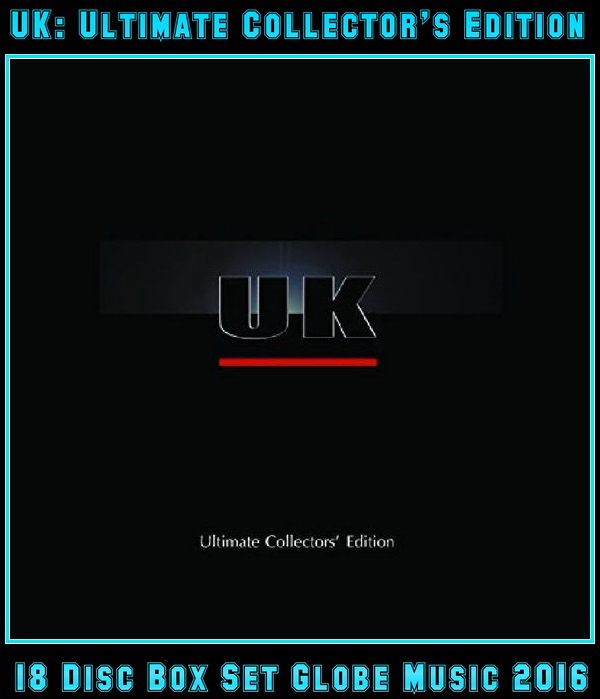
UK: Ultimate Collector's Edition 14CD + 4Blu-ray Box 2016
Lossless Galaxy Release UK: 2016 Ultimate Collector's Edition 14CD + 4Blu-ray Box Set Globe Music Only CD Performer: UK Box / Albums: 2016 Ultimate Collector's Edition 1978 UK • 1978 UK Extras • 1978 UK BD 1978 Live In Boston • 1978 Live In Philadelphia • 1978 Live In Cleveland 1979 Danger Money • 1979 Danger Money Extras • 1979 Danger Money BD 1979 Night After Night Extended Version 2CD • 1979 Night After Night Original Version 1979 Night After Night Extended Version BD 2011 Reunion 2CD •
11 10, 2025
Beat - Neon Heat Disease - Live In Los Angeles (2025) 2CD
Artist: Beat Title Of Album: Live In Los Angeles Year Of Release: 2025 Label (Catalog#) :Inside Out Music IOM756 Country:: USA Genre: Prog Rock Quality: FLAC (tracks+log) Bitrate: Lossless Time: 44:24+66:38 Full Size: 755Mb(+3%)(covers) Upload: xfile.cloud Legendary former King Crimson members Adrian Belew and Tony Levin banded together with guitar virtuoso Steve Vai and explosive Tool drummer Danny Carey to create BEAT, a creative reinterpretation of the three iconic 1980s King Crimson albums

Beat - Neon Heat Disease - Live In Los Angeles (2025) 2CD
Artist: Beat Title Of Album: Live In Los Angeles Year Of Release: 2025 Label (Catalog#) :Inside Out Music IOM756 Country:: USA Genre: Prog Rock Quality: FLAC (tracks+log) Bitrate: Lossless Time: 44:24+66:38 Full Size: 755Mb(+3%)(covers) Upload: xfile.cloud Legendary former King Crimson members Adrian Belew and Tony Levin banded together with guitar virtuoso Steve Vai and explosive Tool drummer Danny Carey to create BEAT, a creative reinterpretation of the three iconic 1980s King Crimson albums
10 10, 2025
Жанры
Lossless Galaxy Release
Русская музыка
--Поп
--Рок
--Панк
--Альтернатива
--Металл
--Рэп, Хип-Хоп, R'n'B
--Джаз и Блюз
--Фолк
--Шансон, Авторская песня
--СССР
Зарубежная музыка
--Pop
--Rock
--Hard Rock
--Progressive & Art-Rock
--Pop-Rock & Soft Rock
--Instrumental Rock
--Heavy, Traditional, Industrial Metal
--Power, Gothic, Sympho Metal
--Thrash, Speed, Groove, Modern Metal
--Death, Melodic Death, Doom, Dark Metal
--Black, Pagan, Folk, Viking Metal
--Alternative
--Punk
--Disco, Eurodance
--Rap, Hip Hop, R'n'B
--Reggae, Ska, Dub
--Jazz, Blues, Soul
--Folk, Country, Ethnic
--Electronic, Ambient, New Wave
--House, Techno, Trance
Другие жанры
--New Age, Relax, Meditative & Flamenco
--Chillout, Lounge, Downtempo, Trip-Hop
--Drum & Bass, Jungle, Breakbeat, IDM
--Classical / Классическая музыка
--Soundtrack
--Музыкальные сказки
Vinyl Rip
HI-Res / DVD-Audio / DTS
--SACD
--DSD
--DVD-Audio
Сборники Lossless-Galaxy
Альбомы 2022
Альбомы 2023
Альбомы 2024
Теги
1st Press 2022 2023 2024 2025 70... AOR Black Metal Blues Blues Rock Bootleg Series Classic Rock Death Metal Discography Exclusive for Lossless-Galaxy Folk Rock Fusion Hard Rock Heavy Metal Hi-Res Japanese Edition Jazz Jazz Rock lossless Melodic Death Metal Melodic Rock Modern Electric Blues Pop Pop Rock Power Metal Prog Rock Progressive Metal Progressive Rock Psych Rock Psychedelic Rock Rock SACD Symphonic Metal Thrash Metal Дискографии от KoGGaN
Архивы
Опрос
В каком формате хотели бы видеть релизы на сайте ?
 Автор: vitaljazz, 28 октября 2009, Комментариев: 0, Просмотров: 1 990
Автор: vitaljazz, 28 октября 2009, Комментариев: 0, Просмотров: 1 990PUPPET SHOW - THE TALE OF WOE - 2006
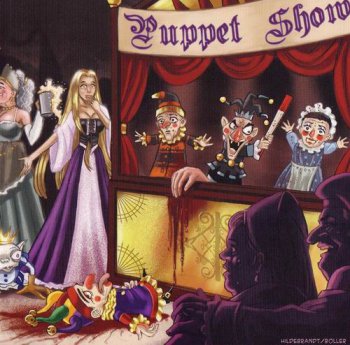
YEAR: 2006
STYLE: Neo Progressive Rock
FORMAT: APE (Image + Log + .Cue + Scans + 5% Recovery)
SIZE: 431 Mb
COUNTRY: USA
THE BAND: Sean Frazier / vocals; Mike Grimes / keyboards; Chris Mack / drums; Chris Ogburn / guitars; Craig Polson / bass
Prolusion. The history of PUPPET SHOW, from California, USA, counts thirteen years already, but "The Tale of Woe" is only their second release, a whole decade separating it from its predecessor, the group's first brainchild, "Traumatized". The press kit draws a pretty vivid picture of the matters that caused the group's long silence, all of which, though, just once again prove the topicality of the axiom: It's a hard life to prog nowadays. "The Tale of Woe", which was mixed by veteran sound engineer and producer Terry Brown (Rush, Fates Warning et al.), is my introduction to the work of Puppet Show.
Analysis. The six tracks on "The Tale of Woe" vary not only in duration, but also in style and some other characteristics too. However the longest two, The Seven Gentle Spirits and The Past Has Just Begun, are kindred creations, and since these run for 30+-minutes (thus forming half of the disc's content), their influence on the album's general appearance is definitely weighty. Both are versatile, multi-sectional compositions with a genuinely epic magnitude, fully coinciding with my concept of a progressive rock suite. Okay, some hints of Neo can be traced on both, but overall their sound is much closer to archetypical major-league art-rock bands like Genesis and Yes, both these being references in this particular case. Some organ-based themes, as well as that instrument's tonality, instantly evoke the work of Tony Banks; synthesizer patterns are at times strongly reminiscent of those by Rick Wakeman, though the name of Geoff Downes occasionally comes to mind too. The vocals rarely arouse associations, but when they do, I am reminded of both Peter Gabriel and Steve Walsh (Kansas). Each of the epics begin with a rather long instrumental intro, which is in both cases followed by a smooth theme with only vocals, piano and acoustic guitar in the arrangement. It's hardly possible to describe all the subsequent events in detail, so I'll just mention that later on, most of the music evolves firmly in an orthodox sympho-prog mode, combining fervent energy with transparence and fragility. The arrangements now rush like mountain waterfalls, now move slowly like a plains river, but always passionately, the melodic component being kept safe throughout, although the tunes' modal structures transform very frequently. Especially ambitious are the long instrumental interludes that are to be found on each, some of those on The Past Has Just Begun being just breathtakingly intricate, due to their genuinely large-scaled nature. Indeed, both compositions are academically expressive so to speak, approaching some of the best examples of '70s Art-Rock. The opening track, Seasons, would've been viewed along with the aforesaid two if it hadn't stood out for its two relatively long movements with the use of big guns much in the style of Rush (at their most symphonic: think "Permanent Waves" rather than "Power Windows" though). Otherwise it's extremely original and, at the same time, intricate song, plus not without some truly memorable melodies, which amazingly coexist in concord with complex stop-start moves and odd meters that the group uses so lavishly here - well, as well as almost everywhere on the album. Contrary to the opening number, its track list counterpart On Second Thought belongs to the Prog-Metal genre almost in its entirety, although there is something that, on the one hand, unites these two and, on the other, distinguishes them from all the other tracks, namely the fact that the music is in both cases intense nearly throughout. There are plenty of instrumental interludes on the concluding track too, the overall picture suggesting something in the style of Dream Theater, though one of the most eclectic, say, episodes reminds me a bit of The Waiting Room from "The Lamb Lies Down on Broadway" by Genesis. The only instrumental, God's Angry Man, is a splendidly innovative piece and is IMHO as excellent as any of the said songs, despite its relative shortness. There are two brief movements that may also bring to mind Dream Theater, but otherwise this is a very eclectic, I'd even say eccentric composition, whose appealingly angular constructions bear a certain resemblance with Avant-garde Prog, even with Rock In Opposition! Before remarking on the remaining track, I'd like to look over the disc from its performance perspective. Craig Polson's bass work pleases with its fat, often pronouncedly heavy lines, as also is Chris Ogburn's inspired guitar playing and the complex (often both thunderous and pounding) drumming by Chris Mack. Mike Grimes' keyboards (organ, synthesizers and piano) hold up equally fine within the sections with both dynamic and intricate moves and those with softer ones. No less impressive are Sean Frazier's powerful, yet very flexible vocals, which can now be both harsh and demanding, now touchingly dramatic and more. That being said, the academic power of Puppet Show is evident throughout, with the exception of the shortest track, Harold Cain. While not completely without originality, this tune for the most part reminds me very much of what Genesis could have done on their first retrogressive album, "Duke" or, maybe, even on "Abacab".
Conclusion.If the third track would have not been included, the disc still had lasted for about 55 minutes and been astonishing from beginning to end. Nevertheless, "The Tale of Woe" is overall worthy of every kind of praise and can be highly recommended to everyone into Symphonic Progressive and beyond, all of which I hope is clear from the previous paragraph.
http://www.progressor.net
Analysis. The six tracks on "The Tale of Woe" vary not only in duration, but also in style and some other characteristics too. However the longest two, The Seven Gentle Spirits and The Past Has Just Begun, are kindred creations, and since these run for 30+-minutes (thus forming half of the disc's content), their influence on the album's general appearance is definitely weighty. Both are versatile, multi-sectional compositions with a genuinely epic magnitude, fully coinciding with my concept of a progressive rock suite. Okay, some hints of Neo can be traced on both, but overall their sound is much closer to archetypical major-league art-rock bands like Genesis and Yes, both these being references in this particular case. Some organ-based themes, as well as that instrument's tonality, instantly evoke the work of Tony Banks; synthesizer patterns are at times strongly reminiscent of those by Rick Wakeman, though the name of Geoff Downes occasionally comes to mind too. The vocals rarely arouse associations, but when they do, I am reminded of both Peter Gabriel and Steve Walsh (Kansas). Each of the epics begin with a rather long instrumental intro, which is in both cases followed by a smooth theme with only vocals, piano and acoustic guitar in the arrangement. It's hardly possible to describe all the subsequent events in detail, so I'll just mention that later on, most of the music evolves firmly in an orthodox sympho-prog mode, combining fervent energy with transparence and fragility. The arrangements now rush like mountain waterfalls, now move slowly like a plains river, but always passionately, the melodic component being kept safe throughout, although the tunes' modal structures transform very frequently. Especially ambitious are the long instrumental interludes that are to be found on each, some of those on The Past Has Just Begun being just breathtakingly intricate, due to their genuinely large-scaled nature. Indeed, both compositions are academically expressive so to speak, approaching some of the best examples of '70s Art-Rock. The opening track, Seasons, would've been viewed along with the aforesaid two if it hadn't stood out for its two relatively long movements with the use of big guns much in the style of Rush (at their most symphonic: think "Permanent Waves" rather than "Power Windows" though). Otherwise it's extremely original and, at the same time, intricate song, plus not without some truly memorable melodies, which amazingly coexist in concord with complex stop-start moves and odd meters that the group uses so lavishly here - well, as well as almost everywhere on the album. Contrary to the opening number, its track list counterpart On Second Thought belongs to the Prog-Metal genre almost in its entirety, although there is something that, on the one hand, unites these two and, on the other, distinguishes them from all the other tracks, namely the fact that the music is in both cases intense nearly throughout. There are plenty of instrumental interludes on the concluding track too, the overall picture suggesting something in the style of Dream Theater, though one of the most eclectic, say, episodes reminds me a bit of The Waiting Room from "The Lamb Lies Down on Broadway" by Genesis. The only instrumental, God's Angry Man, is a splendidly innovative piece and is IMHO as excellent as any of the said songs, despite its relative shortness. There are two brief movements that may also bring to mind Dream Theater, but otherwise this is a very eclectic, I'd even say eccentric composition, whose appealingly angular constructions bear a certain resemblance with Avant-garde Prog, even with Rock In Opposition! Before remarking on the remaining track, I'd like to look over the disc from its performance perspective. Craig Polson's bass work pleases with its fat, often pronouncedly heavy lines, as also is Chris Ogburn's inspired guitar playing and the complex (often both thunderous and pounding) drumming by Chris Mack. Mike Grimes' keyboards (organ, synthesizers and piano) hold up equally fine within the sections with both dynamic and intricate moves and those with softer ones. No less impressive are Sean Frazier's powerful, yet very flexible vocals, which can now be both harsh and demanding, now touchingly dramatic and more. That being said, the academic power of Puppet Show is evident throughout, with the exception of the shortest track, Harold Cain. While not completely without originality, this tune for the most part reminds me very much of what Genesis could have done on their first retrogressive album, "Duke" or, maybe, even on "Abacab".
Conclusion.If the third track would have not been included, the disc still had lasted for about 55 minutes and been astonishing from beginning to end. Nevertheless, "The Tale of Woe" is overall worthy of every kind of praise and can be highly recommended to everyone into Symphonic Progressive and beyond, all of which I hope is clear from the previous paragraph.
http://www.progressor.net
Track Listing:
1. Seasons (8:45)
2. Seven Gentle Spirits (14:17)
3. Harold Cain (4:16)
4. The Past Has Just Begun (16:41)
5. God's Angry Man (4:13)
6. On Second Thought (11:52)
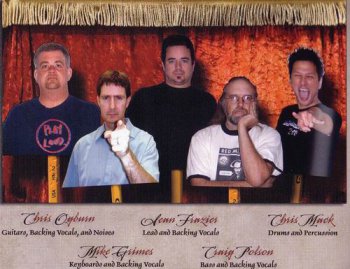
The Band:
- Sean Frazier / vocals
- Mike Grimes / keyboards
- Chris Mack / drums
- Chris Ogburn / guitars
- Craig Polson / bass
Внимание! У Вас нет прав для просмотра скрытого текста.
Похожие новости:
Комментарии отсутствуют
Добавить комментарий!
Информация
Посетители, находящиеся в группе Гости, не могут оставлять комментарии к данной публикации.

